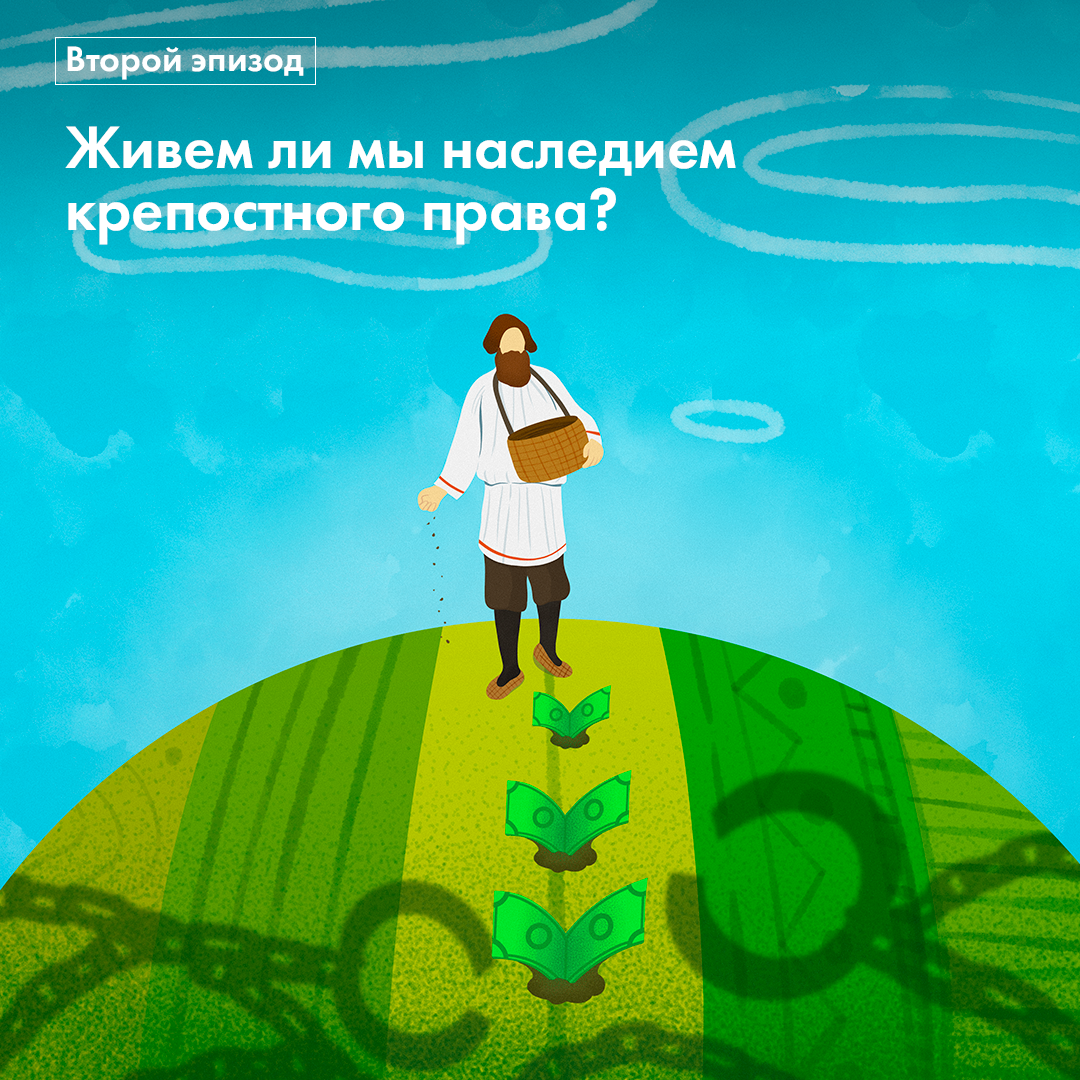Are We Living the Legacy of Serfdom?

Timecode
01.17 — What has changed and has not changed in the Russian economy over 200 years
02.50 — Did serfdom lead to the 1917 revolution?
05.26 — How the abolition of serfdom led to an increase in productivity, and land reform - to its decline
07.29 — Is there a connection between past and present problems
08.29 — How the well-being of people today is connected with how many serfs lived in their regions in the past
10.15 — Is it possible to get rid of the legacy of the past
13.49 — Over time, the influence of the past diminishes
15.49 — How slavery in the USA differed from serfdom in Russia
17.47 — Black Lives Matter and the legacy of slavery in the United States
19.20 — Where did the Russian community come from and how it functioned
20.50 — Why is the community bad for the economy?
23.55 — How the Stolypin reform influenced our attitude to private property
Description
160 years have passed since the liberation of the serfs, but the legacy of serfdom still haunts the Russian economy and society. In regions where there were more serfs, today there is less consumption, and the origins of the negative attitude towards private property can be associated with the first privatization carried out by Peter Stolypin at the beginning of the 20th century. Professor of the Russian School of Economics (NES), co-director of the joint bachelor's degree program at NES and the Higher School of Economics Andrei Markevich talks about the legacy of the past and how to overcome it in the new episode of the podcast "Economics by ear".
The second season of the podcast was implemented with the support of the Russian Agricultural Bank.

.png)













